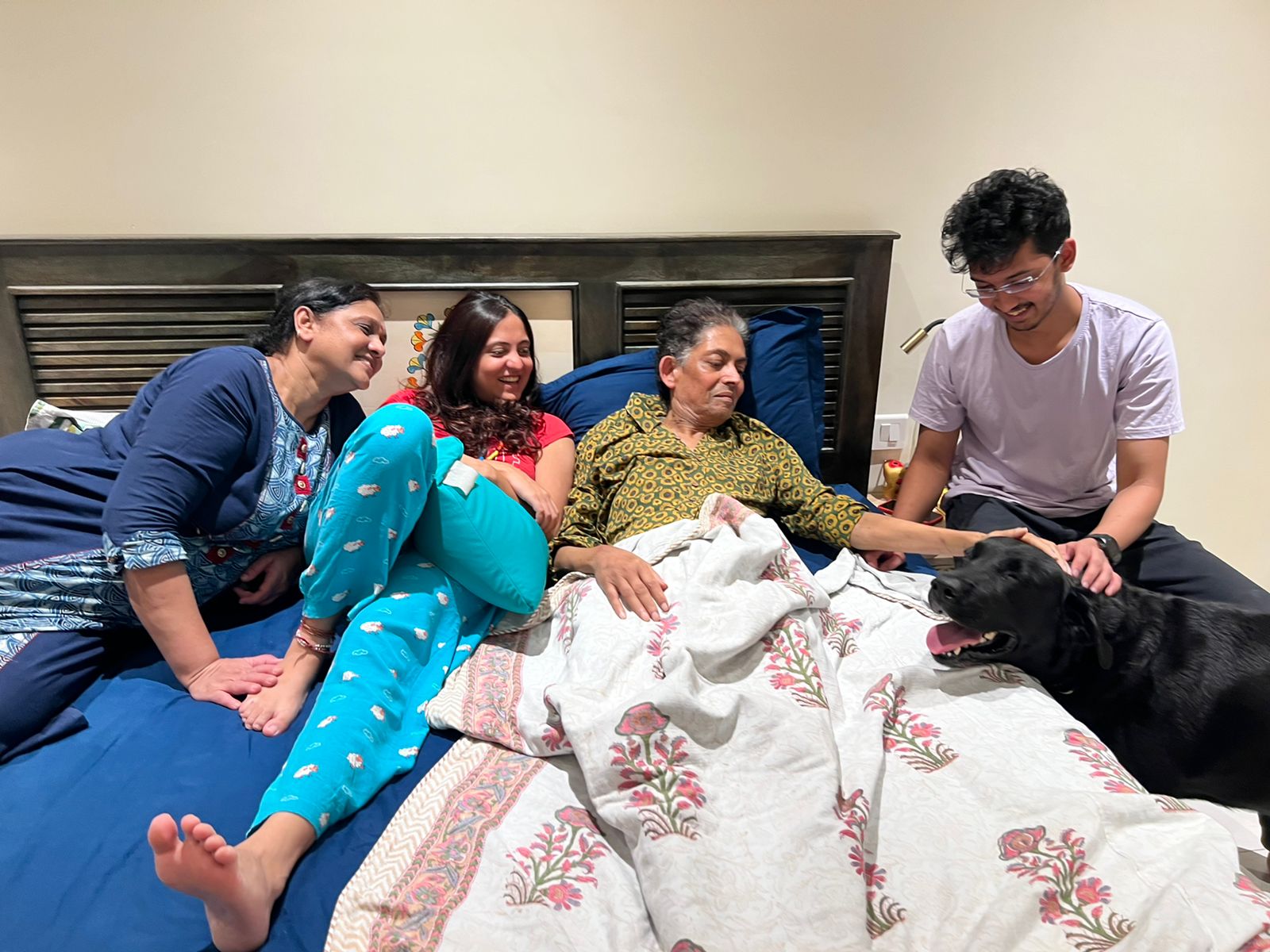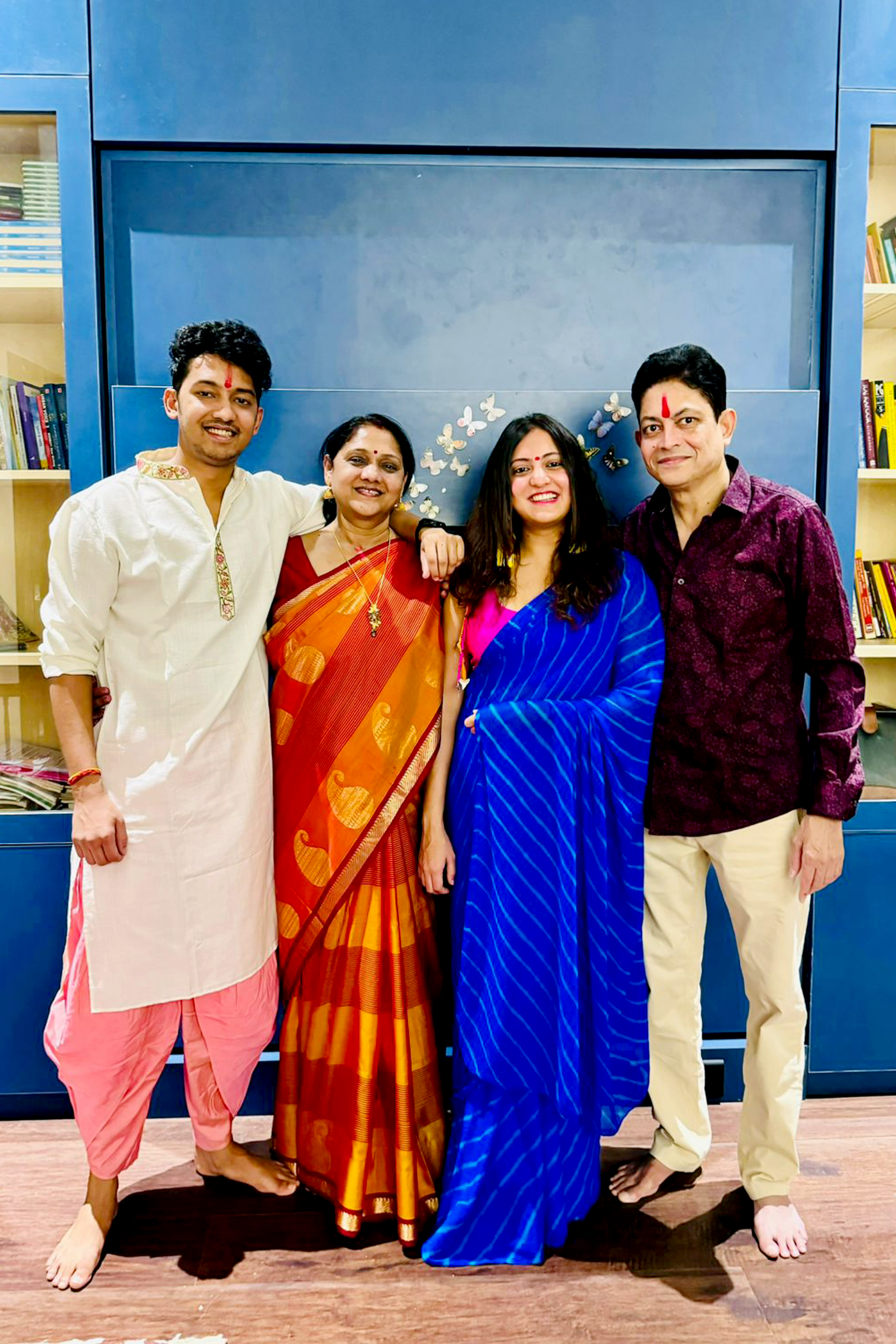
Madhavi Kumar pens the traumatic experience of her husband Ramendra’s sepsis soon after he was diagnosed with cancer and undergone surgery for it. Ramendra’s ileostomy procedure which was expected to be a “much, much simpler operation” but turned into a complete nightmare. Here is her account of the ordeal she and her children went through while Ramendra suffered multiple septic shocks.
Your husband Ramendra's first septic shock occurred post his cancer related surgery. Did you understand what septic shock was at that time? Did the doctor explain what was happening and why?
After the ileostomy procedure on 6th April, Ramendra’s bowels didn’t work for the first 6 days and then there was a deluge which completely dehydrated him. The sodium levels increased alarmingly, and that led to disorientation. He also reacted very badly to Lorazepam and became extremely agitated. The doctors shifted him to the ICU.
On 16th April, the doctors found that his stomach looked distended. A CT scan found faecal matter floating all around the abdomen cavity. There was a leak in the small intestine, near the site of the surgery. The doctors decided to go in for an emergency surgery. This was the third surgery in the span of a month.
The surgery went off well and my kids and I went home.
At 10pm, my daughter got a call from the hospital informing us that Ramendra had gone into a septic shock. I had no idea about septic shock and the doctors also did not explain. They only said that his BP is plummeting, and he is not responding to any medication.
Since your husband was in the ICU, what precautions did you and your children have to take around him for infection control & hygiene?
We were given ‘Hazmat suits’ to wear. There were no issues in wearing the Hazmat suit.
Did you understand why Ramendra went on to get 2 more septic shocks?
After the first septic shock we were explained that he had a very stubborn klebsiella infection which had led to the septic shocks.
He was put on a high dose of antibiotics. Once the symptoms started subsiding, they tapered the dose. However, after a day or two of him being absolutely fine the symptoms would reappear. As a result, the doctors had to increase the dosage. This happened three times after which they took Ramendra to the OT for a thorough clean up. After this he was on the road to recovery.
What were the signs/symptoms of the subsequent shocks? Did you become more adept at recognising them the next time around?
Since he was in the ICU, we had no scope to identify the symptoms. We were updated by the doctors regarding his condition from time to time.
How long was he in ICU?
40 days
Mental disorientation and confusion are one of the signs that Ramendra presented with, how did you manage these?
We were allowed to meet Ramendra only for a short while each day, we simply went along with whatever he said without contradicting him or getting into any argument.
How did this inability to meet him affect you? How did you as a family set up a process for dealing with this difficult period?
The time we were allowed to visit Ramendra was just not enough. And our visits were monitored not by the doctors or the para-medical staff but by the security guards which is just not acceptable. When your loved one is in the hospital you want to reach out and he/she too is desperate for some emotional hand holding. In such a critical situation both the patient and the caregiver needs a more empathetic intervention. The lack of access to Ramendra did have an adverse impact on both him and us. We really could not offer him the emotional support we would have liked to – a connect which he too sorely missed.
Another issue which we had to address was Ramendra’s humongous anxiety to get out of the ICU and back to the ward. In the ICU he was suffering from psychosis and the accompanying mental chaos, and the acute loneliness was making him desperate. Every time we visited him, he would plead, cajole and emotionally blackmail us to take him to the ward. We, in consultation with the doctors, avoided shifting him because of the recurrent infection leading to the septic shock. The doctors and three of us knew that the best chance of recovery was in the ICU. Moving him to the ward would be fraught with danger.
If you wanted information regarding his septic shock, what or whom did you reach out to?
The doctors explained to us and later we supplemented this information by browsing the internet.
Were the hospital staff, nurses or junior doctors helpful in providing sufficient information?
Yes, they were.
What was the general attitude of the hospital staff during your stay at the hospital? For example, did they get irritated if you probed or asked too many questions?
No, they were empathetic and helpful.
After discharge from the hospital, how did you manage Ramendra at home?
I took care of his physical needs like helping him empty the stoma bag and giving him a bath etc. Initially, our children and I facilitated him in managing his feelings and emotions.
We were there 24 X 7 offering him emotional support, encouraging him to eat well, exercise and build enough strength to gradually manage on his own in the house. Whenever he showed an inclination to step into his creative space, we were there offering him support, validating every move and cheering every little milestone.
What helped him most was his creativity. He adopted a structure within a couple of weeks after discharge. He would write regularly, post on the social media and thus keep himself occupied in doing work which was enriching and fulfilling. This connect with creativity kept him going and is still one of the cornerstones of his fight with cancer.

Although many people recover completely from septic shock, some do experience long-term effects termed Post-septic shock syndrome. Did Ramendra have any such long- lasting effects? (these include sleeping irregularity, nightmares, PTSD, weakness, mood swings, kidney damage etc.)
He still suffers from sleep irregularity, weakness and neuropathic pain.
Do you or Ramendra continue to have the fear of septic shock recurring?
No, we don’t.
What lifestyle changes have you made post this experience?
He follows a disciplined routine as far as diet, rest and exercise are concerned. He also goes for regular check-ups.
Does Ramendra have any memory of his septic shock events? Do you fill in those memory gaps for him?
During septic shocks he was not conscious. We had to relate to him exactly what happened. However, in the period he was in the ICU he suffered from ‘ICU Psychosis’ and was frequently delusional. He remembers almost each and every detail during the entire stint. He narrated to us his experiences like he was reading out from a script – with scenarios, characters, settings and dialogues in place - which is quite surprising.
Any practical tips that you can share based on what worked for you?
The most vital aspect I would stress upon for care givers is that before choosing the hospital where you want the patient to be treated exercise due diligence. Do as much research as you can. Once you have chosen the hospital then have faith on the doctors and the line of treatment. You will be deluged with advice of well-meaning relatives and friends but do not be swayed by it. It is important to continue having trust in your doctors. Could even be stuff like handling information to extended family and friends, setting up daily routine to allow for visits. We restricted all visits initially because his immunity was compromised. Slowly as his condition improved, we started encouraging visitors and also began taking him out.

Any message for others in similar situation
When you are with the patient, however critical the situation is never, ever press the panic button. Never make the patient feel that all hope is lost. A positive attitude around the patient will go a long way in helping him face the toughest of odds.
To read Ramendra’s journey with cancer, click on https://www.patientsengage.com/personal-voices/positivity-relationships…






